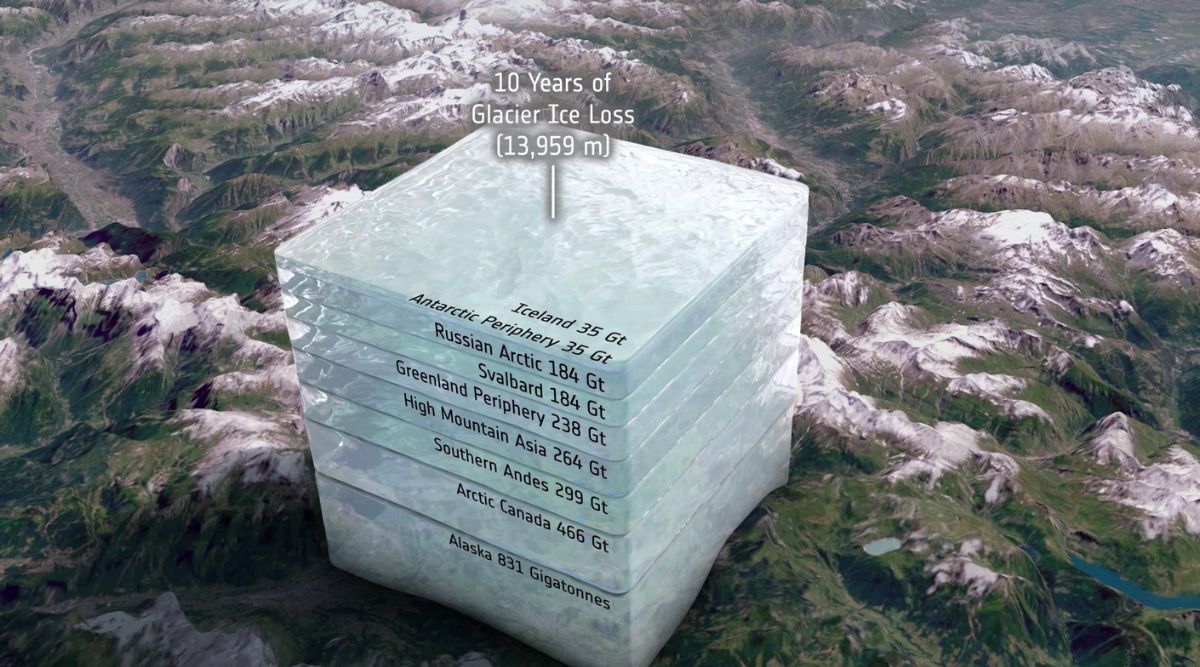Global glaciers lost ice equivalent to weight of 4 trillion cows in one decade
Researchers have used data from the European Space Agency's CryoSat to measure the amount of ice lost by glaciers around the world between 2010 and 2020.
 Glacier ice loss visualises as a cube. (Image credit: ESA/Planetary Visions)
Glacier ice loss visualises as a cube. (Image credit: ESA/Planetary Visions) If you were asked to imagine the damaging effects of climate change, the first image that pops into your head would probably be that of an ice shelf dropping into the ocean. According to a new study, glaciers around the world are shedding a shocking amount of ice every year.
It is quite difficult to accurately track the amount of ice that is being shed by glaciers around the world. But according to the European Space Agency (ESA), scientists have used data from its CryoSat satellite to discover that glaciers worldwide have shrunk by a whopping 2 per cent in just ten years. All of this is due to the higher air temperatures.
In a research study published in the peer-reviewed journal Geophysical Research Letters, scientists processed data from CryoSat to reveal that glaciers around the world lost a total of 2,720 gigatonnes of ice between 2010 and 2020.
To put that into perspective, if you assume that the standard weight of a cow is about 680 kilograms, 2,720 gigatonnes would be the weight of about 4 trillion cows. Apart from estimating the sheer amount of ice lost in glaciers, researchers also demonstrated that higher air temperatures are responsible for 89 per cent of ice loss.
According to the United Nations, nearly two billion people, or one out of every four people on Earth, live in areas where glaciers and seasonal snowmelt supply water. The global reduction in glacier mass documented in the study, therefore, could have serious implications for a large part of the world’s population.
Apart from affecting the potable water supply for a large part of the world, the loss in glaciers could contribute to the faster rise of sea levels, further disrupting lives and livelihoods.






